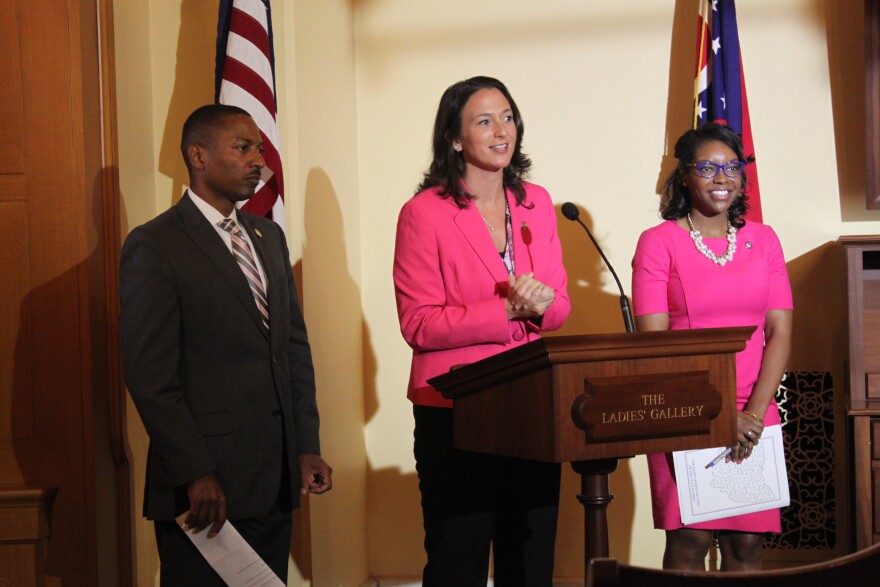Just months after being reelected to the Ohio legislature, Akron-area representative Greta Johnson will step down this weekend to become the deputy law director for Summit County. Before she left, though, she penned a scathing open letter to Governor Kasich about what she calls his "hypocrisy" around fighting the opioid epidemic.
"While addiction is not a moral issue, choosing to do nothing about people dying from addiction is," Johnson writes, taking issue with Kasich's hesitance to declare the epidemic a "statewide emergency."
Despite Kasich's advocacy for keeping Medicaid expansion and pushes to restrict prescription opioids, Johnsons says Ohio falls short on enforcement, education and treatment. Her new job, she says, will put her on the "front lines of where the responsibility really falls."
"Quite frankly, you know, the locals are being called upon to do so much of the heavy lifting with things in terms of the opioid epidemic," she says.
During her time in the legislature, Johnson sponsored a number of bills, even since being reelected - including to remove sales taxes from feminine hygiene products. She called being in the minority party "frustrating" though still important.
"There's really no room for mediocrity," she says.
Johnson talked to WOSU's Clare Roth about her reasons for leaving the legislature and why she is ready to fight Ohio's opioid epidemic on a local level.
Clare Roth: So you were reelected just a few months ago, in November of last year. Why leave just a few months into your second term?
Greta Johnson: Well I have just been provided with an incredible opportunity to go work for the new county executive. Ilene Shapiro is the first female county executive in the state of Ohio. She's been a mentor to me for 10 years, and to be offered the opportunity to be on the front side of her legacy, it's just simply once in a lifetime.
I mean the other part of it, Clare, is that we all get sent down to Columbus on a temporary assignment. And at the end of my term, I was going to be 45 years old. And there was going to have to be another job. I feel really lucky that the next job came to me and it really is a dream job.
Clare Roth: Did frustration at the lack of progress of the Statehouse contribute at all to your decision?
Greta Johnson: Well I mean it certainly didn't help. It has been frustrating but I also feel like there's never been a more important time for strong voices to be in the Statehouse, especially on the Democratic side, being in the deep minority. There's really no room for mediocrity. So, you know, it was a frustrating time to be there, but it's not the reason that I'm leaving.
Clare Roth: You penned a letter yesterday to Governor Kasich, calling on him to do more to address the opioid epidemic in the state. So far the governor's expanded Medicaid, and earlier this year he signed a bill that tightened restrictions on prescription opioids and made addiction treatment easier to get. So what else do you think he needs to do?
Greta Johnson: Well he may have made opioid addiction - he may have created some access, but there isn't as much available as there needs to be. And certainly, you know, I appreciate that some effort has been made but there needs to be a holistic legislative approach to this. And the governor needs to be very specific about what's going on in the state of Ohio. This is a state of emergency. I think what we need is a bipartisan, bicameral committee that addresses the enforcement piece, the education piece and the treatment piece, and looks at the ways in which those bills will affect each other. Right now we're piecemealing it together through different committees and we can end up with new legislation that will not work hand in hand but will actually work against other ideas.
Clare Roth: Looking not only at the opioid epidemic but at some of the other things that you've expressed passion for - gender equality being near the top - do you feel you can do more on a county level than you were doing at a state level on these issues?
Greta Johnson: Well I certainly feel like I'm going to be able to help people in an everyday kind of way, in a way that I wasn't able to at the Statehouse, but at the Statehouse, it's certainly an elevated platform for my voice and I was able to bring attention to issues.
As far as interacting in an everyday way, there's just a different kind of help that you can do at a local level. And quite frankly, you know, the locals are being called upon to do so much of the heavy lifting with things in terms of the opioid epidemic. And I feel like this puts me on the front lines of where the responsibility really falls.






